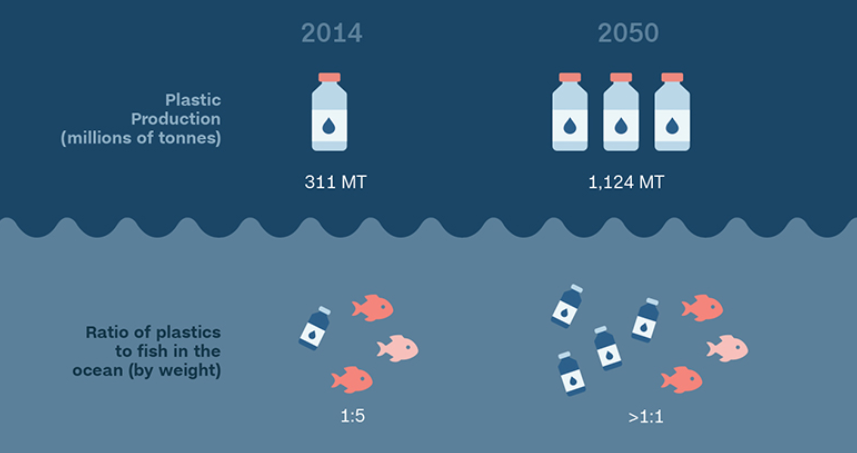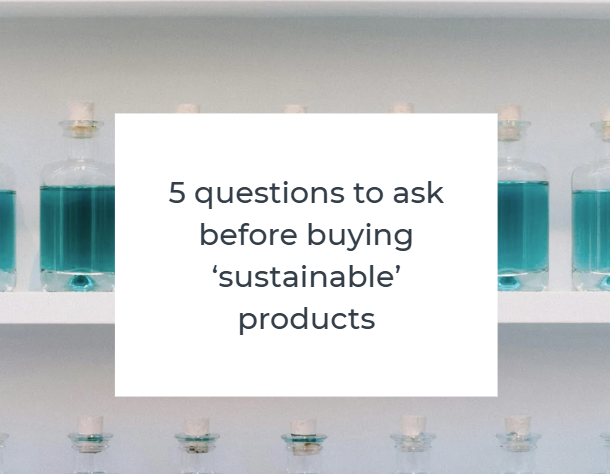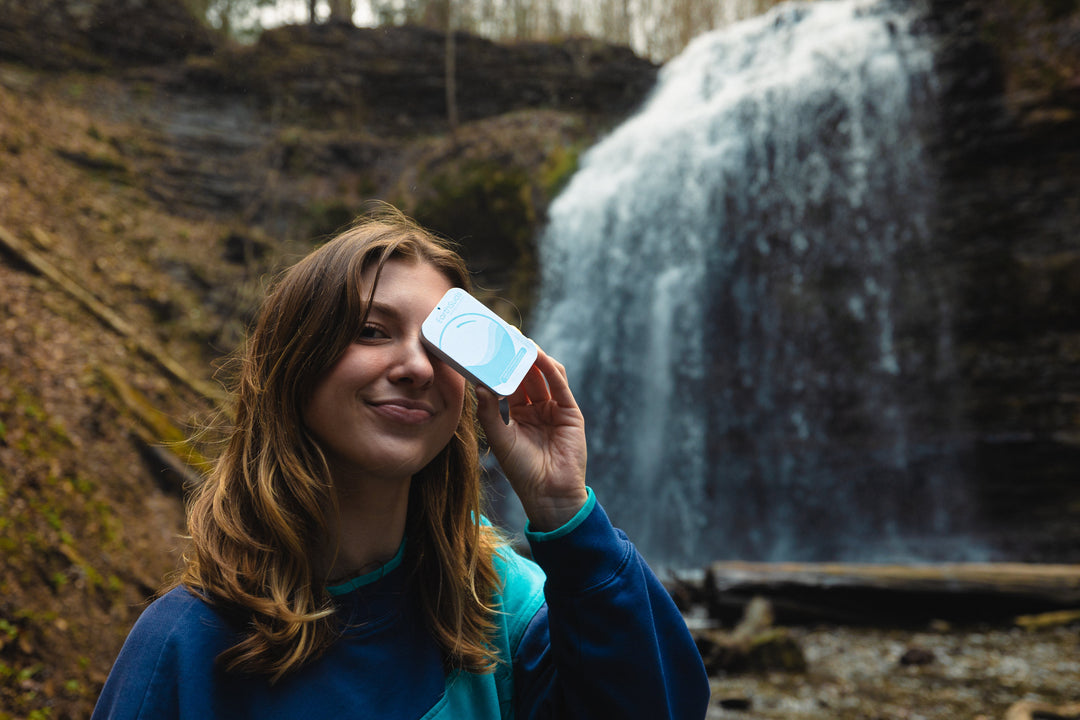Time’s up for Canada’s single use plastics

Our dependence on plastic is one of the biggest problems we face as a species. From overflowing landfills to suffering marine life, petroleum-based plastics are polluting the air, water, and food that we need to survive, and this problem is rapidly growing. With plastic production doubling every 20 years, the World Economic Forum reports that by 2050 the oceans could contain more plastic than fish. As Canadians, we’re responsible for taking some of the blame. Every year, we generate around 3.25M tonnes of plastic waste – that’s the equivalent weight of over 140,000 full garbage trucks. We need to do better.
Single-use plastics are a big part of the problem. This term refers to disposable plastics that are used only once before they’re discarded. In the last couple of years, there have been an increasing number of protests against straws and grocery bags, but these single-use plastics are just a fraction of the problem. Our research here at EarthSuds has focused on the single-use plastic bottles of shampoo, conditioner, and soaps used in the hotel industry. Our impact assessment revealed that Canadian hotels send over 750M of those bottles to landfills every year. This is a huge issue.
So how do we solve this problem? The Ontario Ministry of the Environment, Conservation and Parks offered some possible solutions in their recent discussion paper “Reducing Litter and Waste in Our Communities”. We will start by evaluating why most of the solutions mentioned in the paper are ineffective, then prove why a ban on single-use plastics is the best course of action to address this issue.
One category of proposed solutions focus on improving waste diversion rates in Ontario, which have stalled below 30% over the last 15 years. Initiatives include increasing consumer awareness about waste sorting and a deposit return system (an initial surcharge for reusable plastics and a rebate when they’re returned). Not only would these initiatives cost thousands of taxpayer dollars, their main flaw is that they do not address the root issue. They do not eliminate the creation of new single-use plastics which creates a game of keep-up that can’t be won.
Another solution proposed in the paper is a ‘producer responsibility model’, which would make producers responsible for the entire waste cycle of their products. This is a progressive solution that we encourage the province to implement and enforce. However, we recognize that the transition to this model will take time and fear that the worst polluters will simply buy their way out of the responsibility, just like they’ve done with initiatives such as the Ontario Carbon Trust. It is time for a bolder solution.
A ban on single-use plastics is the most effective course of action. It would have the largest impact on our ecosystems and would make a difference quickly. A timely solution for petroleum-based plastics is crucial, as a recent United Nations report warned that we only have 11 years left to prevent irreversible damage from climate change. This ban would also ensure that all corporations act, even those who are the worst offenders.
Some may argue a ban is bad for business, but it’s clear that consumers are increasingly choosing more eco-friendly offerings, therefore a ban stimulates corporations to serve their customers better. In fact, businesses are already starting to eliminate single-use plastics; the Marriott International recently discontinued plastic straws in their 6,500 hotels worldwide. Additionally, Canadian start-ups are developing innovative plastic-free solutions. At EarthSuds, we’ve created the world’s first single-use portioned tablets of shampoo, conditioner, and body wash for hotels. We package the tablets in reusable containers and use eco-friendly ingredients to make top quality products that hotel guests can enjoy and the Earth can sustain.
When deciding how to implement this ban, Ontario can learn from other regions that have paved the way. In 2014, California became the first U.S. state to ban plastic bags and have since phased out plastic straws, food containers, and other packaging. This month, California also advanced a bill that would ban hotels from providing plastic bottles for soap, shampoo, and conditioner. Not to be outdone, Vancouver has banned plastic straws, foam cups, and plastic containers as part of their Zero Waste 2040 strategy.
The problem is ours to solve. We’re producing over 140,000 full garbage trucks worth of plastic waste every year and sending 750M plastic hotel toiletry bottles to landfills. A ban on single-use plastics must be a priority for early action. Corporations must be held accountable so that we can chart a new course towards a plastic-free, healthier future for our country and our planet. If we can stop single-use plastics from being produced and supplied, we can stop people from using them. It’s as simple as that.






